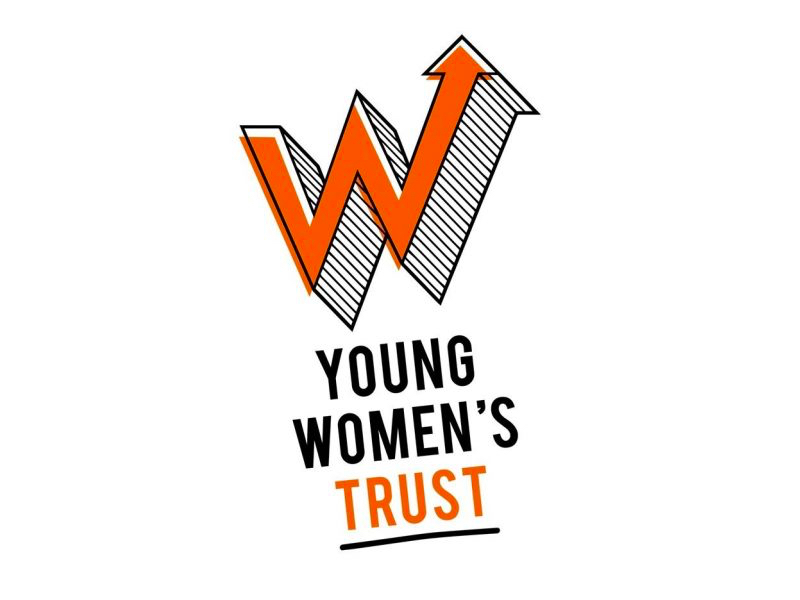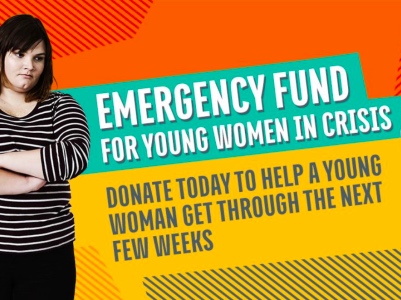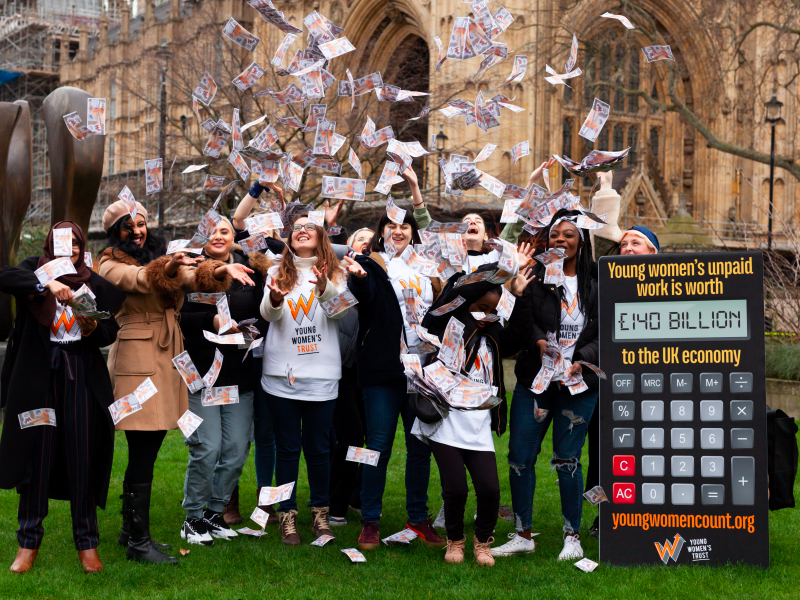-
Tell us a bit about yourself, background and your current role
 I am currently Chief Executive of Young Women’s Trust, which is a charity that supports and represents disadvantaged young women.
I am currently Chief Executive of Young Women’s Trust, which is a charity that supports and represents disadvantaged young women.
Most people don’t realise that over one million women aged 16-30 in the UK are facing a lifetime of poverty, that over 25 per cent of young women are in debt all the time and that young women are those most likely to be workless or stuck in low-paid and insecure work. I find it profoundly shocking that 27 per cent of mothers under 25 have used a foodbank in order to put food on the table for their children and that the incidence of anxiety and depression is now highest amongst young women.
Financial security is fundamental to women’s well-being and ability to make life choices – such as to be able to leave a violent relationship and put a roof over their own and their children’s heads. Work is no longer a sure route out of poverty with housing and child-care costsbeing inaccessible to millions.
It is a huge privilege to run an organisation that works closely with young women and delivers a unique coaching service and provides advice on job applications and CVs to thousands of women each year. The charity also conducts research and strives to make changes in policy and practice in areas that profoundly affect women’s lives – such as levels of pay and gender discrimination at work.
-
Did you ever sit down and plan your career?
I never sat down and planned my career. I initially went to university to study Computer Science but soon discovered that I preferred the extra-curricular modules on psychology and sociology. After much further training, I worked within the NHS as a Child Psychotherapist and then moved into the charity world, which I found to be much more creative and innovative in how we could respond to the needs of children. I also very much enjoyed the ability to become involved in research and campaigning. For me, the combination of helping individuals while trying to “change the world” is what is so very stimulating.
-
Have you faced any challenges along the way and if so, how did you deal with them?
If a job is interesting it will have challenges. I cannot imagine any role that I would want to do that does not have challenges and I have been immensely fortunate to have jobs that have been enormously stimulating and interesting. But the list of challenges is undoubtedly long and I will have to select just a few:
- A constant worry about whether we can raise enough money
- The job is never done – sadly I would like to think we could reach a point where we could pack up and go home and that there would be no need for the services or campaigning that we do. This won’t happen in my lifetime. Meanwhile we know that there is so much more we could do if we had the resources.
I have to deal with these challenges by becoming very thick skinned to deal with rejection and by not being afraid to ask for money. In the UK, talking about money and asking for donations is hugely sensitive and, as the Chief Executive, I have to do all that I can to support a small team working extremely hard to raise much needed funds.
When applying for roles I have faced false assumptions in those recruiting, assumptions which I would now like to challenge:
- Size matters. I applied for one job (having run a charity with income over £20m) and was told that they wanted someone who had run a bigger organisation (more like £40m). This reasoning was repeated elsewhere. Having run small and medium sized organisations I know it is harder to run the small ones. There is a need to become knowledgeable in all areas of the organisation and to truly understand the challenges facing beneficiaries and staff.
- Gender matters. In retrospect I can see that as a woman I was less likely to be appointed to certain roles when competing against men. The tendency, even in the charity world, to over-value technical skills such as finance as opposed to management and people skills, and the false confidence of men means that women are under-represented in senior positions and on boards.
- Age matters. Women experience discrimination at both ends of the age spectrum. Employers are reluctant to employ women who might go on to have babies or have childcare responsibilities and older women are seen as past it. For the younger women we need to make it possible for men to genuinely share the responsibility for childcare and for older women I would recommend that you remove the dates from your CV so that people cannot work out how old you are.
-
How do you feel about mentoring? Have you ever had a mentor or do you mentor anyone?
I am not very good at being a mentor because usually people come anticipating that they need help and support and are not doing very well, either overall or in particular areas of their work. My approach means that quite soon they can see where they are doing well and how to apply this to other areas of their work – so they don’t need me anymore!
I am more interested in reverse mentoring. Schemes by which others can share their experience and thoughts with you in areas over which you have some say or control. For example I would like to see that young women in organisations, particularly where they are under-represented such as IT or construction, are given the opportunity to mentor managers and directors rather than vice versa. This would help senior staff understand what they need to do to improve their workplace to attract and retain women.
-
If you could change one thing for women in the workplace, what would it be?
The combination of flexible and part-time working truly available for men and women and affordable year round child-care would make a significant difference to women at all levels in the workplace.
-
What has been your biggest achievement to date?
On an organisational level, leading the merger of ChildLine with the NSPCC is something of which I am particularly proud.
I feel enormously heartened and encouraged too when I hear the individual stories of women whom Young Women’s Trust has helped – such as Priscilla, with whom I shared a platform recently at Westminster. She had been homeless and workless and thanks to the support she received from Young Women’s Trust she is now in work that she thoroughly enjoys and has a roof over her head.
-
What is your next challenge and what are you hoping to achieve in the future?
I want to make sure that Young Women’s Trust has even more impact by helping thousands more young women with direct support and advice. I also want to make sure that the charity can influence changes in society, government and the workplace, which mean that women don’t face the level of disadvantage and discrimination that are still so very prevalent today.
-
Do you have any advice for women in the workplace, that you wish someone had told you?
I would advise women in companies to work together to influence change in their organisations – such as ensuring that there are equal opportunities for progression and that job evaluation is audited to ensure that work that women generally do, such as caring, HR and customer relations, is valued as highly as roles that men generally do, such as IT and finance.








